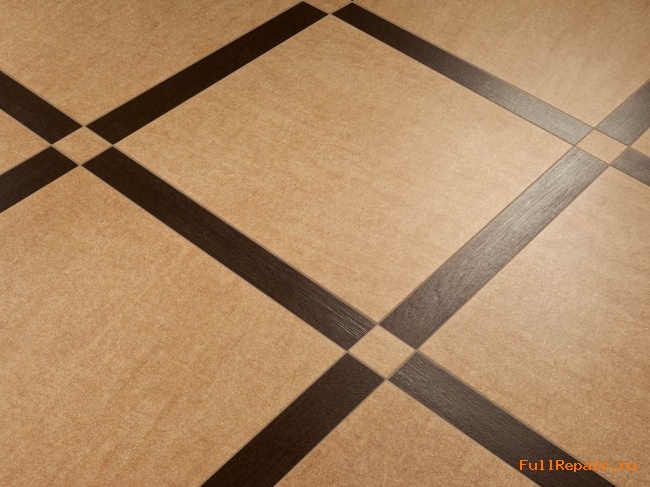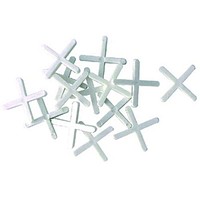During repairs, many people in the apartment building used as a ceramic tile floor. This cover looks great in any environment, from the most simple and uncomplicated to expensive. This building material is perfect for the kitchen, bathroom or hallway. In this paper, we consider the installation of ceramic tiles by hand.

For construction work on the laying of ceramic tiles, the following tools: ruler, rubber mallet, trowel, grout crosses, laser level, building level, special glue, betonokontakt, pencil, Bulgarian, container for mixing glue, drill, putty for seams, batten and screws.
First floor of the room must be covered betonokontaktom to improve ties with contact adhesive and a base plate. It is applied with a brush of natural cloth. After applying the betonokontakta it must be dried.
One must also consider how to lay ceramic tile the best way, because some of the tiles in the future to be clipped. It is best to cut the tiles are not conspicuous (for toilets, a bathroom).

Then on the floor to make a mark that will show how the tile will be a number from which to start laying. Doing layout, remember thickness seams between tiles, which specifies a special cross.
Building tiles to be laid from the middle of the room. This is due to the fact that often the premise is far from ideal rectangular dimensions, and therefore the size of the room on the edge of the tiles will be different circumcised.
Then begin to lay the tile, using a special tile adhesive. Last stir and put on the floor and the tiles, removing the last part of the excess with a notched trowel. We must not forget that the first tile sets the position of the rest. Tiles should lay out, inserting between construction crosses. One seam inserts two cross. Close to the walls and unnecessary measure the distance of the cut tile. To carry out these activities, you can also use the grinder. Next, you need to tap on after installation. If all is well, you should hear a thud. These manipulations are required in order to ensure that no voids under the tile, which can weaken it, and greatly increase the likelihood that after a slight amount of time it will bounce or crack. After the end of the laying of floor construction material, to cover up the seams.
 Full-Repair.com
Full-Repair.com